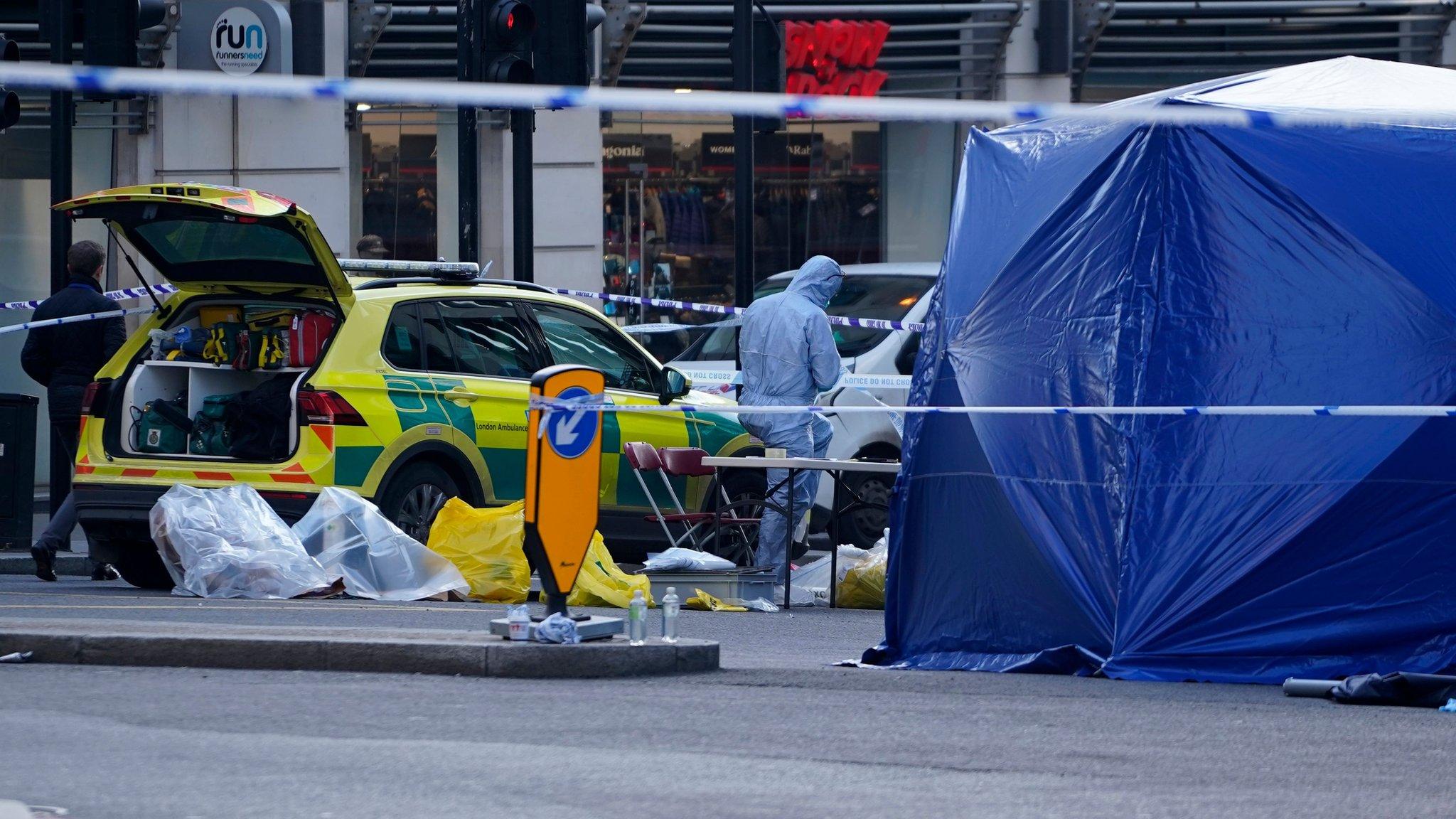London Bridge: Two killed in stabbing attack
- Published
What happened at London Bridge stabbing incident?
Two members of the public have died and another three people were injured in a stabbing attack at London Bridge, the Met Police's commissioner has said.
Cressida Dick told a press conference the stabbing attack, which has been declared a terrorist incident, began at an event at Fishmonger's Hall.
Within five minutes of being called officers confronted the suspect - who was shot dead by police - she said.
The suspect was wearing what is thought to have been a hoax explosive device.
He was a former prisoner and convicted of a terrorist offence, sources have told the BBC.
The BBC has spoken to people who were inside Fishmonger's Hall, where a criminal justice event was taking place.
Dozens of people were in attendance, including students from Cambridge University and former prisoners.
The university said it was "gravely concerned" about reports of its students and staff being caught up in the attack and was urgently seeking further information.
Ms Dick said police were working at "full tilt" to understand what had happened and whether anyone else was involved.
Officers were still working to identify the dead, she said.
Of the injured people, one is critical but stable, a second is stable and a third has less serious injuries, the head of the NHS, Simon Stevens said.
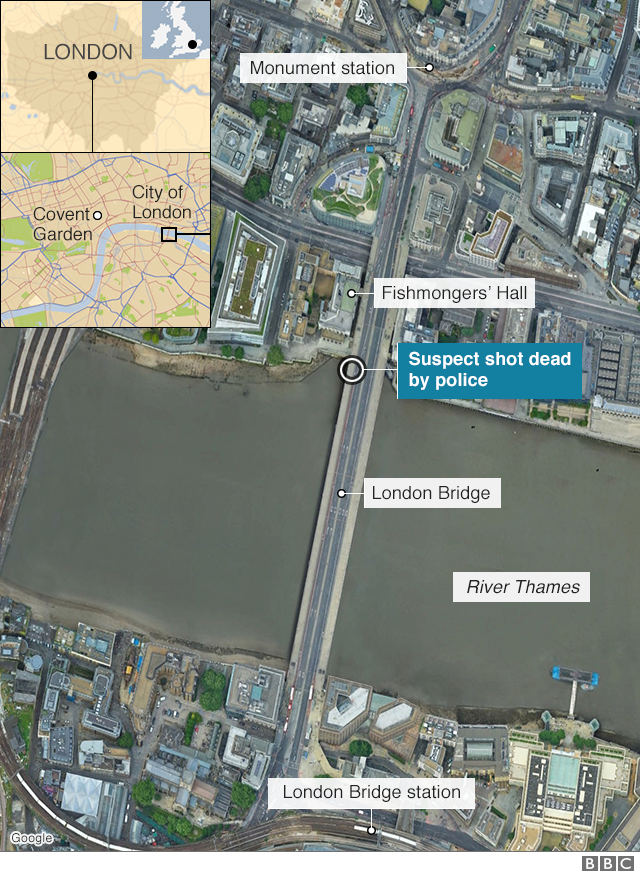
Details of what happened are still emerging, but videos on social media appear to show passers-by holding down the suspect on London Bridge.
Another man in a suit could be seen running from him, having apparently retrieved a large knife.
Footage then shows an officer arriving, seeming to indicate to the group to move, and firing a shot.
The actions of the public have been widely praised, including by Prime Minister Boris Johnson, Labour leader Jeremy Corbyn and Ms Dick, who said they had shown "extreme courage".
She added: "Ours is a great city because we embrace each other's differences.
"We must emerge stronger still from this tragedy. In doing that we will ensure that the few who seek to divide us will never, ever succeed."
Tour guide Stevie Hurst told 5 Live he kicked the suspect in the head


There was no intelligence of anything about to happen, sources say, and police reacted to events as they unfolded.
At the start of this month, the UK threat level was lowered from severe to substantial - reflecting an assessment from the Joint Terrorism Analysis Centre that an attack was likely rather than highly likely because of a relative decline in activity.
The challenge for police and security services is that low-tech attacks - involving knives or vehicles - and often carried out by lone actors can be hard to spot in advance since they involve relatively little preparation and communication.
But in the wake of previous incidents in both the UK and other countries, police have been prepared for this kind of incident and seem to have been fast to intervene, taking few chances, although members of the public were also involved in restraining the individual.
The priority for police and MI5 now will be establishing the identity of the individual, whether he had any links or associations and whether there is any ongoing related threat.

Earlier, Neil Basu, head of UK counter-terrorism policing, said the suspect was wearing what is believed to be a hoax explosive device.
BBC security correspondent Frank Gardner said attackers wear fake suicide vests for a couple of reasons: To add to public panic and in some cases to ensure police shoot them dead.
To some attackers, martyrdom is preferable to capture, trial and spending many years in prison, our correspondent added.
Police have said cordons will remain in place and extra police patrols will be held across the capital.
Prime Minister Boris Johnson, who returned to Downing Street from his constituency, will convene a meeting of the government's emergency Cobra committee at 21:30.
He said the emergency services and members of the public who intervened "represent the very best of our country".
"This country will never be cowed or divided or intimidated by this sort of attack and our values, our British values, will prevail," Mr Johnson added.
Boris Johnson: "Our country will never be divided or intimidated...our values will prevail"
London Mayor Sadiq Khan thanked the members of the public who showed "breathtaking heroism" in running towards danger - "not knowing what confronted them".
The Independent Office for Police Conduct said it has begun a mandatory investigation into the shooting.
London Bridge station and Tube has now reopened after it was earlier closed, Network Rail said.
But trains may continue to be delayed, cancelled or revised while services are reinstated, it added.
Both the Conservatives and Labour say they have suspended election campaigning for the night following the attack.
Einar Orn was on his lunch break when suddenly he saw police cars and heard gunshots
'Get off and run'
Witnesses have spoken to the BBC about what they saw.
Amanda Hunter, who was on a bus on London Bridge at the time, said: "All of a sudden [it] stopped and there was some commotion and I looked out the window and I just saw these three police officers going over to a man…
"It seemed like there was something in his hand, I'm not 100% sure. But then one of the police officers shot him."
Bus driver Mustafa Salih, 62, was travelling from Borough High Street towards London Bridge where he saw emergency vehicles and the police cordon.
He told BBC London: "A police officer came up to me and said 'turn off your engine, get off and run'.
"I looked up and I could see a crowd of people coming towards me.
"One woman was crying. I ran back down to Borough High Street. It was all very scary as we did not know what was happening."
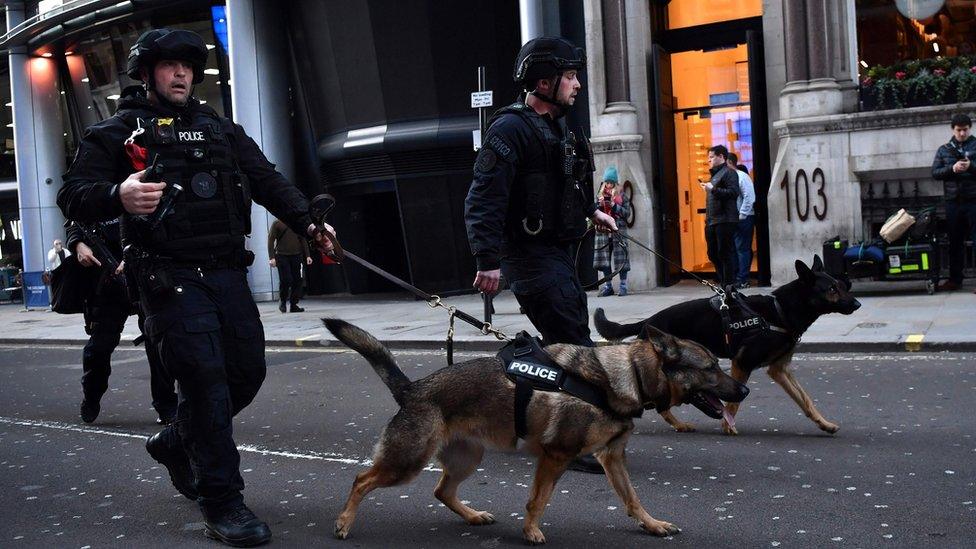
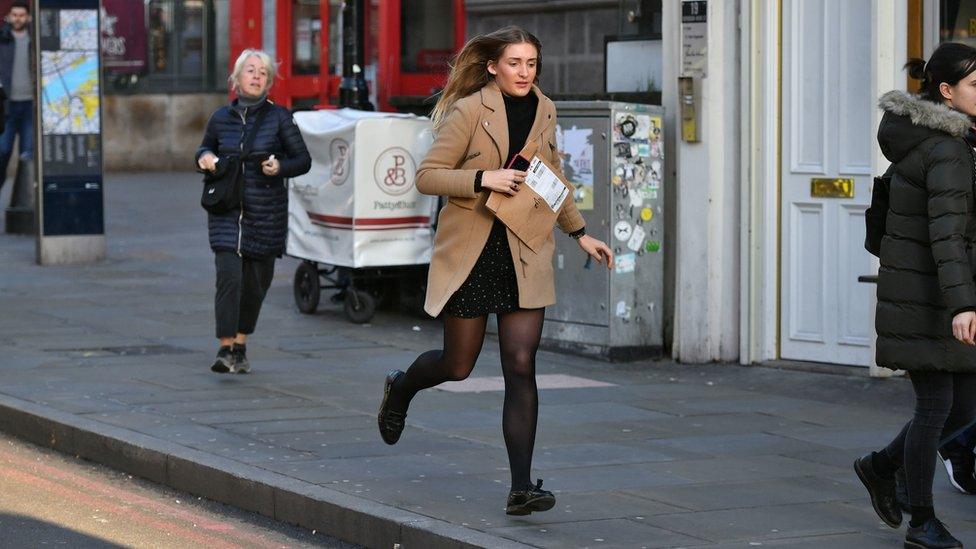
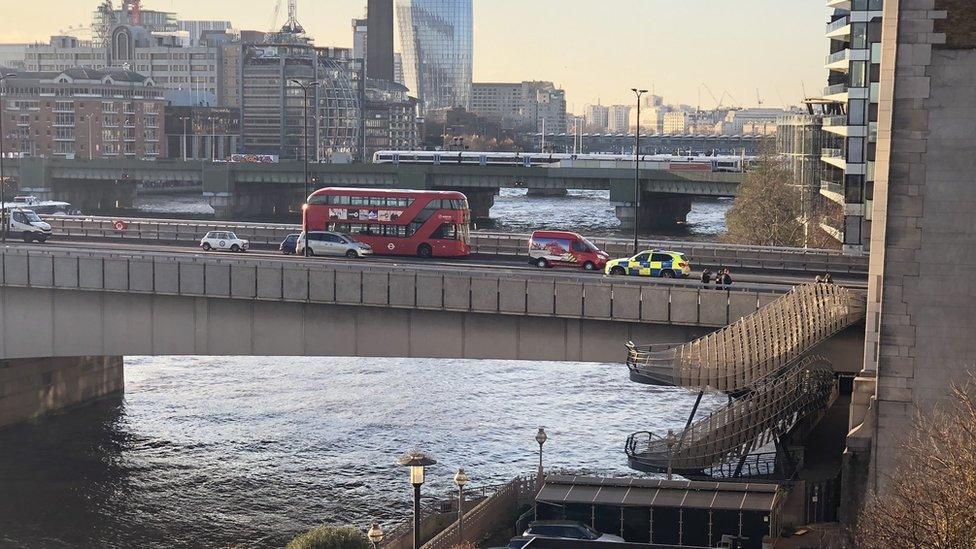
London Bridge was the scene of another attack, on 3 June 2017, in which eight people were killed and many more injured.
This latest attack comes after the UK's terrorism threat level was downgraded on 4 November from "severe" to "substantial", meaning that attacks were thought to be "likely" rather than "highly likely".
The terror threat level is reviewed every six months by the Joint Terrorism Analysis Centre, which makes recommendations independent of government.
- Published29 November 2019
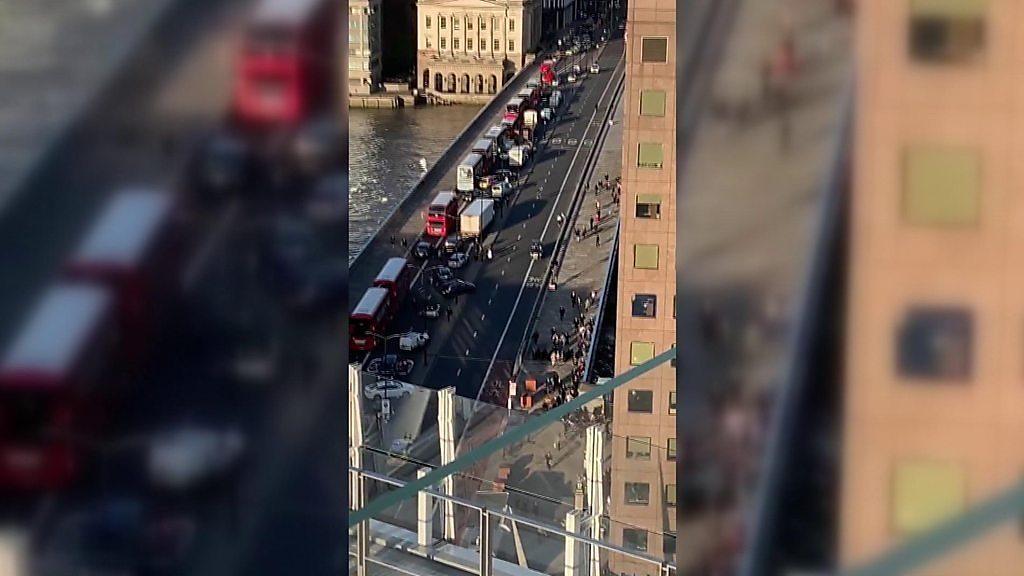
- Published29 November 2019
